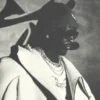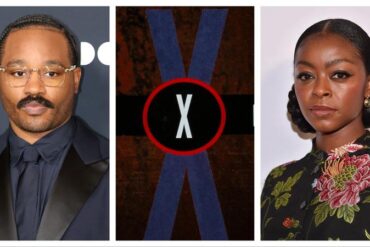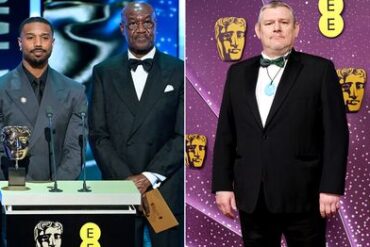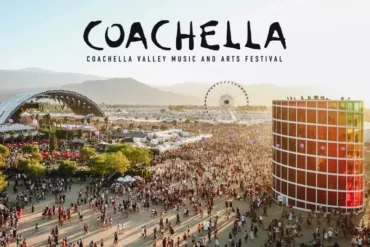Backstage was a buzzing scene, packed with key figures from Chief Keef’s career. DJ Kenn, who started collaborating with Keef at the age of 12, was there. DJ Amaris, who played a pivotal role in Keef’s rise in Chicago, handled the music for his set. Jordan Gilty, known for the iconic intro to “Love Sosa,” was present. Keef’s daughter, Kayden “Kay Kay” Cozart, mingled with family members and a mix of emerging and legendary rappers like Lil Gnar, Kash Mirr, Big Daddy Deja, Vic Mensa, and Twista. In another corner, Lyrical Lemonade founder Cole Bennett chatted with stars like Lil Yachty and Bu Thiam.
Keef made a grand entrance in a black Escalade, arriving at 9:30 PM—half an hour after his scheduled set time. He hit the stage to roaring cheers, like a homecoming king.
“Chief Sosa is back in the ‘Raq, goddamn! You see me! On folk’s ‘nem grave,” Keef shouted to the crowd. His 45-minute set was a mix of classics like “300,” “Love Sosa,” and “Street Runner,” along with newer hits like “Treat Myself” and “Hadouken.” He was joined by cousins Ballout and Tadoe, Doo Wop, and surprised the crowd with an appearance by G Herbo, who proclaimed Keef as “the GOAT of Chicago” before Keef performed “Faneto” in his hometown for the first time.
This event marked a significant moment for Keef and his impact on Chicago. Despite being one of the city’s most influential rappers, legal issues and political challenges had kept him away since 2014, when he moved to Los Angeles following his cousin Big Glo’s death. Keef became both a symbol of crime and success in Chicago’s hip-hop scene, as Merk Murphy, his co-manager, explained: “Chicago wanted to make him the face of violence while the rest of the world saw him as the face of a new music genre.”
Clearing the legal and political obstacles for his return was no small feat. Chief Keef faced multiple child support warrants due to default judgments, partially based on his initial $6 million Interscope deal, which no longer reflected his financial situation. His team, including manager Peeda Pan, crisis manager Cheo Patrick, and lawyer Mark Whitaker, worked tirelessly to resolve these issues and pave the way for his homecoming.
Chicago’s political climate had also shifted. The administration of Mayor Lori Lightfoot, who took office during the COVID-19 pandemic, adopted a more progressive stance towards drill artists. Plans for Keef’s return were delayed by the pandemic, but under Mayor Brandon Johnson’s administration, his team successfully negotiated with the city and law enforcement to ensure a smooth performance at Summer Smash.
Berto Solorio, CEO of SPKRBX and co-founder of Summer Smash, highlighted the importance of trust built over years of hosting successful, safe events: “Having done this festival for so many years, I think there’s a level of trust we’ve been able to build with the venue. So we’ve been able to produce a lot of really successful, safe environments. And so it kind of makes it a little bit of a smoother road for us to bring these artists home.”
Fans who missed the moment can look forward to a forthcoming documentary about Chief Keef’s return, a collaboration between Lyrical Lemonade, SPKRBX, and GMGT Management, with Blackish creator Kenya Barris involved. “We’re documenting it in its entirety and building out a story that is viewable and digestible for the world,” Cole Bennett said. “I think this is such an inspiring story.”
The last day of the festival, which fell on Father’s Day, featured a heartwarming moment when Keef and his daughter Kay Kay embraced on stage. It captured Keef’s journey from controversial prodigy to celebrated rap star, as Peeda Pan noted: “People are seeing the evolved young guy that started on the South Side of Chicago and is now able to travel the world as an evolved person.”





